PRESERVING A MILITARY LEGACY FOR FUTURE GENERATIONS
The following Reflections represents Sgt Thomas Voss’s legacy of his military service from 1975 to 1978. If you are a Veteran, consider preserving a record of your own military service, including your memories and photographs, on Togetherweserved.com (TWS), the leading archive of living military history. The following Service Reflections is an easy-to-complete self-interview, located on your TWS Military Service Page, which enables you to remember key people and events from your military service and the impact they made on your life. Start recording your own Military Memories HERE.
Please describe who or what influenced your decision to join the Air Force.

My father was the primary reason I joined the USAF. He served during the Korean conflict from 1951-1954. Sadly, he passed away in August 2020. He didn’t leave any hard copy records behind to define his timeline. He spoke to me at length about his tour of duty in Hawaii, where he was a radio security specialist. His group monitored the communications between aircraft pilots and their contacts. They reported on any non-regulation exchanges on radio frequencies. After my original posting of this reflection, I have secured my dad’s military records and DD-214 from the National Archives. Now I have a much clearer picture of his military service, especially the ribbons and medals he was awarded. During his four-year tour in Hawaii, he was decorated with the following: Good Conduct Medal, National Defense Service Medal, Korean Service Medal, and the U.N. Service Medal.
In addition, my best friend in high school had a father who also served in the USAF. Over our 4 years in HS, we had many discussions about following in our father’s footsteps, and we did. Dean was 18 months older than me; he had been held back in grammar school, and I turned 18 on Feb 10th, so we were in the recruiter’s office the next day. We entered the delayed enlistment program, meaning we were inactive reserve members of the USAF for 5 months before we entered active duty and headed for BMT at Lackland AFB in San Antonio. We separated after graduation from BMT to attend different A schools. I was electronics; he was medical.
Following BMT at Lackland AFB in San Antonio, TX, I transferred to Keesler AFB in Biloxi, MS. There, I spent six months in basic electronics school and my specialty AFSC 30450, Radio Relay Equipment Specialist, which was Microwave Radio and Voice Communications. When done with training, I was assigned to a unit in Japan. There were two of us airmen who had graduated from the same AFSC. The other guy was interested in going to Japan. He had been assigned to Germany. He asked me if I would trade assignments, which the AF would allow us to do.
Given that my roots and last name are German, I made the trade and, in the end, was very happy I made that deal. It was, in fact, a life-changing assignment for me. I met my American-born future wife in Germany. We dated, hung out, and spent all our spare time off together. I asked her to marry me in 1977. She said yes, but we were going to wait until we were both back home. I returned home early, 6 months ahead of my scheduled discharge, which is another story altogether. Back in February of 2024, we celebrated our 45th wedding anniversary.

What a shock when I arrived at my unit in 1976. I had no pre-warning and no idea what I had signed up for. My first reaction after arriving and receiving my orientation briefing was, “Ah hell, I didn’t join the USAF; I’m in the GD army.” I had been assigned to a mobile unit called an FACP (Forward Air Control Post). This was a mobile unit that had a garrison location. The primary mission of this unit was Mobile radar, mobile Microwave vans, mobile generators, mobile ground radio units, and, of course, all the Deuce and halves that were loaded with the logistic and support supplies for deployment to remote locations where we had to be self-sufficient. It was your basic wilderness camping, with uniforms and guns. I was initially quite distraught over this reality. I envisioned being assigned to a fixed installation on some remote mountaintop during my training. A fixed microwave communications relay sight with all the creature’s comforts would have been my preference. A place where one wore their blues or khakis to work. Instead, I wore OD green and combat boots every day and battle attire when we went on deployment. We were hip-deep in the Cold War era, and there were active militant groups in Germany. The Red Army faction Baader Meinhof Gang was setting off bombs in public buildings and had included an Air Force officers club. That meant we were at mid-level security in garrison and high-level security when deployed. During my two-year tour, if memory serves, we went on deployment 5 times.
So, I have managed to write way beyond the scope of this reflection’s question. It’s time to offer cheers and move on to my next task.
Whether you were in the service for several years or as a career, please describe the direction or path you took. Where did you go to basic training, and to what units, bases, or squadrons were you assigned? What was your reason for leaving?
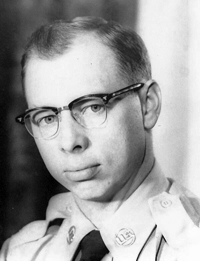
It all started in 1974, my junior year of High School. My good buddy Dean Glover was also contemplating entry into the USAF. His father served as did mine. Both of us were highly interested in joining and doing our part to serve our country. So we visited a recruiter and found that they had a program called the buddy system. We could sign our enlistment documents before graduation and serve some of our inactive reserve time while still in HS. Dean was already 18 in 75. My birthday was on Feb 10th, and I believe I went to the recruiting office and signed the paperwork on the 11th. So, we were real live military at that point. In August, we went active and headed for Lackland AFB. Dean and I were in the same BMT squadron 3707, flt 908. When BMT was complete, we parted ways.
Dean headed off to medical school; I headed off to Keesler AFB, Biloxi, MS. It’s around Oct of 75. At Keesler, I studied basic electronics theory. Following that, I attended AFSC 30430 Radio Relay Equipment Repairman. I was at Keesler for about eight months. When I graduated from the microwave radio school, I was assigned to a unit near Alzey, Germany. I had these delusions of grandeur that I would be assigned to an environmentally controlled building at a fixed microwave communications site. I’d wear my relaxed blues every day. To my utter surprise, I had been assigned to a unit I didn’t even know existed in the USAF. My unit was the 611 TCF (Tactical Control Flight).
The unit occupied roughly 1 1/2 acres on the top of a moderate-sized hill in the middle of nowhere rural Germany. The site had dorms, a kitchen, a movie room, a bar, an entertainment room with pool tables, and fous ball tables. There were approximately 80 people assigned to the 611th. For the most part, all the single guys lived on-site. The married folks could receive a housing allowance and live in the economy. The unit consisted of numerous disciplines, all in support of our primary mission. We were an FACP (Forward Air Control Post). A mobile unit that deployed to remote locations in support of sister units on exercises, or we were on our unit’s exercise. The individual contributors were the unit’s primary function, a 3D mobile radar unit. They needed communications of several different types, so the group I was in provided Tropospheric Microwave Radio Communications to other deployed units or garrisoned units, eventually getting back to Wing Command through as many as four or five relays. The radar guys required voice communication for the tactical aircraft flying missions. So, the third group consisted of the HF, VHF, and UHF two-way radio systems boys.
Their support function was limited strictly to garrison-provided communications for the radar boys. Group number four was the power production group. They provided mobile turbine power generators that operated in garrisons and on deployments. Each unique group had its unique power requirements, so obviously, we had to provide our own. The aforementioned comprised the bulk of the 611th for about the one year I was there. Then, a new group was added to the 611th. They were a radar unit but a unique group that used extremely high-frequency microwave frequencies to communicate directly with aircraft pilots and Nav and Warfare systems on the planes. This unit was called the Bomb Direct Radar group. They pointed their parabolic dish, about 3 feet in diameter, directly at an aircraft and then tracked said aircraft until weapons release. I hadn’t mentioned so far that our unit was a front-line unit. We set up about 5 miles behind the battlefront. Our primary mission was air traffic control of bombers and fighter bombers, providing ground support to infantry fighting at the front lines. When I first arrived at the 611th in 1976, during my intake briefing, I was told that in the event of an actual conflict, our life expectancy ranged from 30 to 45 minutes, on average. As it turned out, I didn’t join the AF; we just glorified and highly technically trained grunts. We wore O.D. Green uniforms. We carried M-16s when we went on deployment or during garrison exercises.
If you participated in any military operations, including combat, humanitarian and peacekeeping operations, please describe those which made a lasting impact on you and, if life-changing, in what way?

I served during the Cold War. There were no armed conflicts during my tour of duty. Nonetheless, I served in a Forward Air Control Post (FACP). Our primary mission, should armed conflict erupt, was to move within 5 miles of the active battle front. We provided radar coverage and guidance for close in-air support. Our estimated life expectancy was less than an hour. One doesn’t have to contemplate that for very long for it to become disconcertingly agitating, especially every time we packed up our garrison equipment and deployed. For the most part, our deployments were relatively benign, even when the I.G. was evaluating us. However, one deployment gave me many motivators to consider the effects upon one’s self should live fire ensue. This particular deployment was limited to just the Tropo Microwave radio vans and their support equipment. We were sent to a mountaintop called Wasserkuppe at a NATO site in the eastern quadrant of West Germany. This NATO site was roughly 100 miles, not clicks, from our home unit, as the crow flies. I stood 3000 feet in elevation. We were sent there in support of another sister FACP that was on deployment for an I.G. inspection. As it turned out, we were sent there in February. Ironically, I celebrated my 20th birthday on that tundra. Yes, it was very cold, so much so that the ground where we set up was frozen. It was true permafrost. Driving stakes to anchor guy wires for our antenna’s took hours. The same thing was true for our tent stakes. We didn’t get to board inside the nice, comfy, environmentally controlled dormitories that housed the permanent military residents assigned there. The result of our week-long stay was mud city. Our space heaters inside our tents kept us toasty warm, but they also melted the permafrost, turning our tent floor into an Irish bog. Existence there was excruciating. Every day, when we slogged out of our tent to check the equipment, you could see the border fence between East and West Germany. I would have to admit it was rather unnerving. The Nsomewhatte was more than just a simple microwave radio relay site. It was also an RF intercept site. They listened in on all East German Radio communications. Moreover, it was a fuel storage dump for diesel-powered tanks and self-propelled heavy artillery.
The low down was that Wasserkuppe was a primary target in the event of the breakout of war. I didn’t just serve during the Cold War era; I experienced its impacts and effects on the human psyche. The remainder of my tour, which was about 1 year & 5 months, was tempered with numerous thoughts about why I was at this place at this stage of my life. I considered myself a true patriot when I joined the AF to serve my country. But that experience at Wasserkuppe really drove it all home in my mind. From that point on, I became a true believer. I was an authentic red, white, and blue American believer in freedom and democracy.
Did you encounter a situation during your military service when you believed there was a possibility you might not survive? Please describe what happened and what was the outcome.

I was never faced with being involved in armed conflict or otherwise. I served from 75 to 78, which was the Cold War era.
Of all your duty stations or assignments, which one do you have fondest memories of and why? Which one was your least favorite?
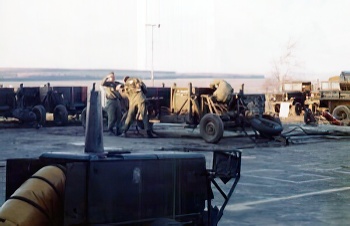
Because I was only assigned to one unit during my tour, it has to be my favorite. I have fond memories of my training days at Keesler AFB, MS. I had several good friends there, and we usually spent our weekends together doing whatever came to mind for entertainment. Nonetheless, that was a short-lived assignment. I spent 2 years in Germany assigned to the 611 TCF. The real fun started when I was invited to live on the economy. Several of my friends had leased a house withfour4 bedrooms. Mike and his wife took the master bedroom on the main floor. The remaining three were downstairs, where three guys from the site lived; about two months after I arrived at the 611th, one of the guys who occupied one of the basement bedrooms rotated out, leaving a room unoccupied. The group left and discussed who to invite, and I was their choice. So, I moved off-site and lived on the economy for the remainder of my European tour. We had an absolute blast living there. We had a monster stereo system set up, and we played all the rock and pop music of the era. Occasionally, we would host parties that drew comers from all over, including the local population of German folk.
The 611th turned out to be not such a bad assignment after all. We stayed in garrison around 80% of the time. Most of the deployments we went on were fully tolerable. There were really only two that were not so pleasant.
From your entire military service, describe any memories you still reflect on to this day.
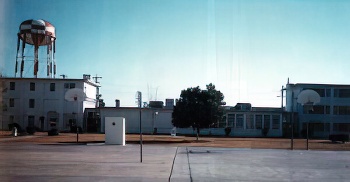
I often reflect on my time at Keesler AFB, not so much about the training I received as about the relationships I developed. One in particular was a brother comrade in Arms, Rowan Nelson Jr.
Rowan and I spent almost all of our spare time together. We had some awesome times there. We went to several concerts in Mobile, AL. One of our most memorable trips was during a four-day weekend. We jumped in Rowan’s 1974 Dodge Dart Sport and headed for Fulton, MO, Rowan’s hometown. Eighteen hours later, we arrived in Fulton from Biloxi. That was by far the longest car trip I had ever been on. We had a great weekend visiting his parents, brother and sister, and fiancee. Unfortunately, we had to return to Biloxi before school started on Tuesday morning. That was one of those bittersweet weekends you hear about.
In addition, I have multiple fond memories of my time in Germany. I traveled a lot to see the country. The beer and the wine were epic discoveries. The people were incredibly nice and bent over backward to accommodate us foreigners from the USA. One of my best trips was with my future wife and my parents. My mom and dad visited for a week, and we went to Munich and the Zugspitze. We spent a couple of nights in Garmisch-Partenkirchen. On our way back to Orbis, where I lived off-site, we took a little detour and visited the Jewish concentration camp at Dachau. That was a sobering experience. I could write a novel about my time in Germany, but I leave this question with answers about the highlights of my time there.
What professional achievements are you most proud of from your military career?
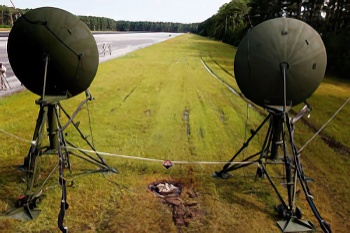
In the USAF, I trained in electronics theory. Then, I went on to my primary AFSC training, which was as a Radio Relay Equipment Repairman. In layman’s terms, that type of communications equipment is Tropospheric Microwave Radio, which transports multiplexed voice and data information to and from a distant station as far as 100 miles away. The education, along with the practical application of my extensive training at Keesler AFB, put into practical application over a two-year tour of duty at the 611th in Germany, did wonders for my civilian career. I strongly supported everything I did post-military service during my time in the AFe. GTE Corp hired me as a microwave radio technician. I had not yet passed my FCC exam for the right to work on radio equipment, but I did within 6 months of my hire date. I had a very satisfying, fulfilling, and engaging 30-year career with GTE. I wasn’t a technician all those years.
I used my G.I. bill to fund my education. I went back to school/college seeking a degree in electrical engineering. There were some hiccups along the way, but 1989 I graduated with a BS in telecommunications management. At the same time, I interviewed for and was hired to fill a first-line supervisory position in the Outside Plant Engineering group. Not long after, I was promoted to Senior Engineer OSP. I took a couple of years off from school but eventually started grad school. In 2002, I graduated with an MBA in Managerial Leadership. My grad school education was paid for through a tuition assistance program at GTE. In the final analysis, I attribute all of my post-military successes to my active duty in the USAF.
Of all the medals, awards, formal presentations, qualification badges you received, or other memorabilia, which one is the most meaningful to you and why?

This is most likely the one category I don’t have any special or positive memories to share quite the opposite. I really didn’t understand just how much I was not recognized for the achievements I had accomplished before my early discharge. I was awarded the Small Arms Expert Marksmanship ribbon in Basic training. I didn’t emphasize that recognition much because I was an excellent marksman before military service.
My immediate supervisor recognized me with a commendation medal just before I left my unit in Germany. I never saw that award. In addition, I learned just recently that I was eligible for as many as four ribbons that I never got because I believe that because of my early release from active duty, any ribbons I should have received were overlooked. I just became another guy who did his time and went home. I did some research and found I was eligible for the Airman’s Medal, the Long Tour Overseas Medal, the Good Conduct Medal, and several others I should have received just for successful completion of 3 years & 5 months with excellent performance and behavior.
Which individual(s) from your time in the military stand out as having the most positive impact on you and why?
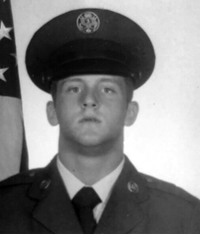
The first and most memorable individual I became lifelong friends with was Rowan D. Nelson Jr, whom I met in BMT. We both went to Keesler AFB following BMT to attend basic electronics training. We spent an additional 6 or 8 months together at Keesler and were inseparable. We spent all of our spare time together. I was sent to Germany for two years when I finished A school. At the 611th TCF, I developed a close relationship with a guy named George Odom. In addition, I became really good friends with Jim Belcher. Those are the three most significant people in my military history. I went to Eglin AFB in Florida when I was rotated out of Germany. I wasn’t there long enough to develop any meaningful relationships. I think my total time at Eglin amounted to something between 3 and 4 weeks, at which point I was discharged from active duty and went home.
Rowan had an incredibly positive impact on me. We had similar value systems, and our personalities just clicked. We became as close as brothers.
List the names of old friends you served with, at which locations, and recount what you remember most about them. Indicate those you are already in touch with and those you would like to make contact with.
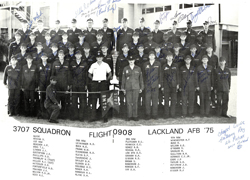
The first significant individual I served with for a short time was actually my pre-military best friend from high school. William Dean Glover, USAF retired colonel, and I were very close friends throughout high school. We were both on the wrestling team, had a cadre of mutual friends, and spent much of our spare time together. In addition, both of our fathers served in the USAF. We decided to join the AF after high school at the beginning of our senior year. In the fall of 1974, we visited the AF recruiter and started the process of enlisting. Dean was already 18, so he signed up. I had to wait until my birthday in February of 75 before I could sign the official enlistment paperwork. Dean and I entered the service in whatise called the buddy system. That meant that we would become active duty at the same time and we would be together through BMT. All bets were off after BMT. He was sent to medical school; I went into electronics. We parted ways at that point and never crossed paths again while on active duty. He went on to go to college and got his BS in nursing.
Moreover, he continued his education by attending grad school and getting his Master’s degree in Neonatal child care, the same discipline he worked in his day job with the AF. He then made the crossover to an AF officer. He made a lifetime career in the USAF and retired as a full-bird colonel. I only saw him once after I had left the service, when he came home on leave. After that, life took control, and we only traded a few emails from that point on.
Rowan Nelson and I became like brothers and still communicate with each other to this day. I met him at BMT, and we both went to electronics school at Keesler, so we became lifelong friends at Keesler. We lost contact for a number of years following our respective discharges from active duty. We both married and started families, so life itself prevented us from staying connected for several years. But we rediscovered each other via social media and have maintained close contact ever since.
I have tried several times to reach out to Dean via social media, but he has never responded. I have no idea in this world why he has elected to sever contact with me.
What profession did you follow after your military service, and what are you doing now? If you are currently serving, what is your present occupational specialty?
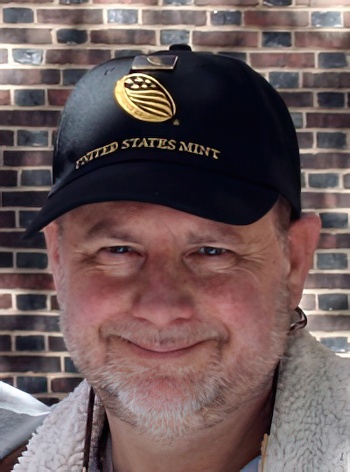
When I left active duty, I sought employment with a company that could fully utilize my training and experience in Microwave Radio communications. As it turns out, I landed a very lucrative technician position with GTE Corp. Not long after I was hired, I passed my FCC licensing exam, securing a 2nd class RF operator license. That gave me free rein to work on all the microwave radio systems used to transport voice and data communications between their local and long-distance connections to the world. I worked for GTE, not entirely as a technician, until they merged with Bell Atlantic in 2000, forming the company Verizon. I worked for Verizon for another 7 years and retired from a career in telecommunications for 30 years. I retired at the age of 50 in 2007. I stayed retired and never worked another productive day. I am now 67, so I’ve been retired for 17 years. My wife retired in 2022 after completing a very successful and fulfilling career of 34 years with the same employer. We currently live in Snohomish, WA.
In what ways has serving in the military influenced the way you have approached your life and your career? What do you miss most about your time in the service?
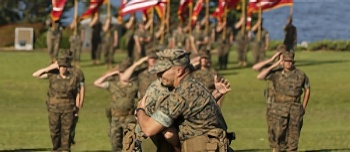
Serving in the US military had an unforgettable and lasting impact and influence on my post-military life. I grew up in the USAF, as many do. I already had a strong baseline value system that came from my parents during the formative years of my life. I already had a strong work ethic and positive behavioral characteristics to form the basis for the military training I was about to receive. BMT met its objective of breaking the recruits down and building them back up with a newfound respect and fear for authority. I didn’t understand the wisdom necessary for transforming the human psyche for some time, but I came around slowly. I think that happened during my two-year tour of duty at the 611th TCF in Germany. I was under the completely false impression that after training, I would be assigned to some cushy fixed microwave radio relay site on some mountaintop with environmentally controlled buildings, hot chow every day while wearing AF utility blues. I was shocked when I arrived at my duty station, the 611th TCF. After my orientation and walk around, I visited all of the critical equipment, not the least of which was the mobile troposcatter microwave vans. Yes, I trained on them, but I really had no clue that they were in such prolific use overseas. It took me a couple of weeks to own the reality of my assignment.
The 611th was a Forward Air Control Post. A combat-oriented unit deployed to a battleground’s front lines to provide radar and communications support for close-in-the-air-to-ground aerial support. We wore OD green fatigues, carried M-16 rifles, slept in tents, ate old WWII-era C-rations, and did our business in pit toilets we had to dig ourselves. I wasn’t in the USAF; I unknowingly joined the Army, or so it seemed. This was an element of AF’s strategic operation I had no idea existed. The longer I was there, the more comfortable and supportive I became of my unit’s mission. I saw other things in the local environment that constantly reminded us of our proximity to the East German border. More than that, our overall presence in the European theater was in the middle of the Cold War. It wasn’t long before I became a true believer and patriot in the USA. I came home with a completely new outlook on the security of this once-great nation and the vital role the US played in having military units in overseas locations to present as deterrents to aggressive actions by hostile entities.
What I believe that experience did for me is it shaped and molded my attitude about the nature of human beings. On the one hand, I was more caring and compassionate towards people that needed it. On the other hand, it instilled a new level of skepticism I had never before possessed. I was more attentive to my surroundings than ever before. My personal philosophy regarding self-protection and the protection of my family has changed in a very positive way forever. That set of beliefs and values was passed on to my children, who are much better equipped to face life’s challenges.
What I miss the most about the military is the unspoken brotherhood that exists between soldiers. Be it the Air Force, Navy, Marines, Army, Coast Guard, Space Force, or all the active reserve units, there exists a certain level of competition between each branch. However, there also exists a mutual respect for each other’s sacrifice and contribution to our country’s security.
Based on your own experiences, what advice would you give to those who have recently joined the Air Force?
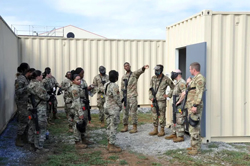
To begin with, I would congratulate and thank the individual for their commitment to the security of this country. I believe telling my personal story and experience would be the best way to encourage and prepare the individual for what’s to come. I would tell them to stay the course as there is quite a lot to be learned over the duration of a four-year tour of duty.
Furthermore, I would suggest they keep their eyes and ears open and their mouths shut, at least until they’ve reached proficiency level 5. My experience was one of the military, which was almost a pure learning environment. Go to work every day with a clean uniform. This will create respect and appreciation for your attention to detail. Absorb as much learning as you can; it will benefit you in civilian life.
In what ways has TogetherWeServed.com helped you remember your military service and the friends you served with?

Together We Served, and it has been a total revelation for me. I think I can sum it up in a short statement. TWS revitalized my pride in my military service. I had not forgotten about my time in the AF; I wasn’t giving it the attention it deserved. Fortunately, I have realized the error in my ways. It may even be possible I’ve gone a tad overboard. I’m not ashamed, nor will I be reticent on the subject of military service. I’m proud of my time and proud of all my brothers and sisters who have or are currently serving. Together We Served prompted me to dig into my father’s veteran history, making him one of my wingmen. I knew of my father’s contribution. We talked many times about his experience. What I never got from him was when he actually served. I knew he was stationed in Hawaii and served during the Korean conflict at some point.
To make him a wingman, I needed more details. So, I reached out to the National Archives and requested his records. I got my hands on his DD-214, which cleared up many questions for me. In addition, it was a bit of a surprise: I didn’t know he was decorated four times during his tour. I was so proud to finally realize the totality of his military background, which is now reflected in his profile as my wingman in Together We Served. As it turns out, I also found that the USAF neglected me and didn’t receive the number of ribbons I deserved for my time on active duty. I have reached out to the National Archives for replacement medals my dad was awarded and also for the medals I should have been awarded. I feel fortunate to have discovered Together We Served in the final analysis. It reinvigorated my silently held pride in my veteran status and drove me to discover a much clearer picture of my father’s service history.
PRESERVE YOUR OWN SERVICE MEMORIES!
Boot Camp, Units, Combat Operations
Join Togetherweserved.com to Create a Legacy of Your Service
U.S. Marine Corps, U.S. Navy, U.S. Air Force, U.S. Army, U.S. Coast Guard
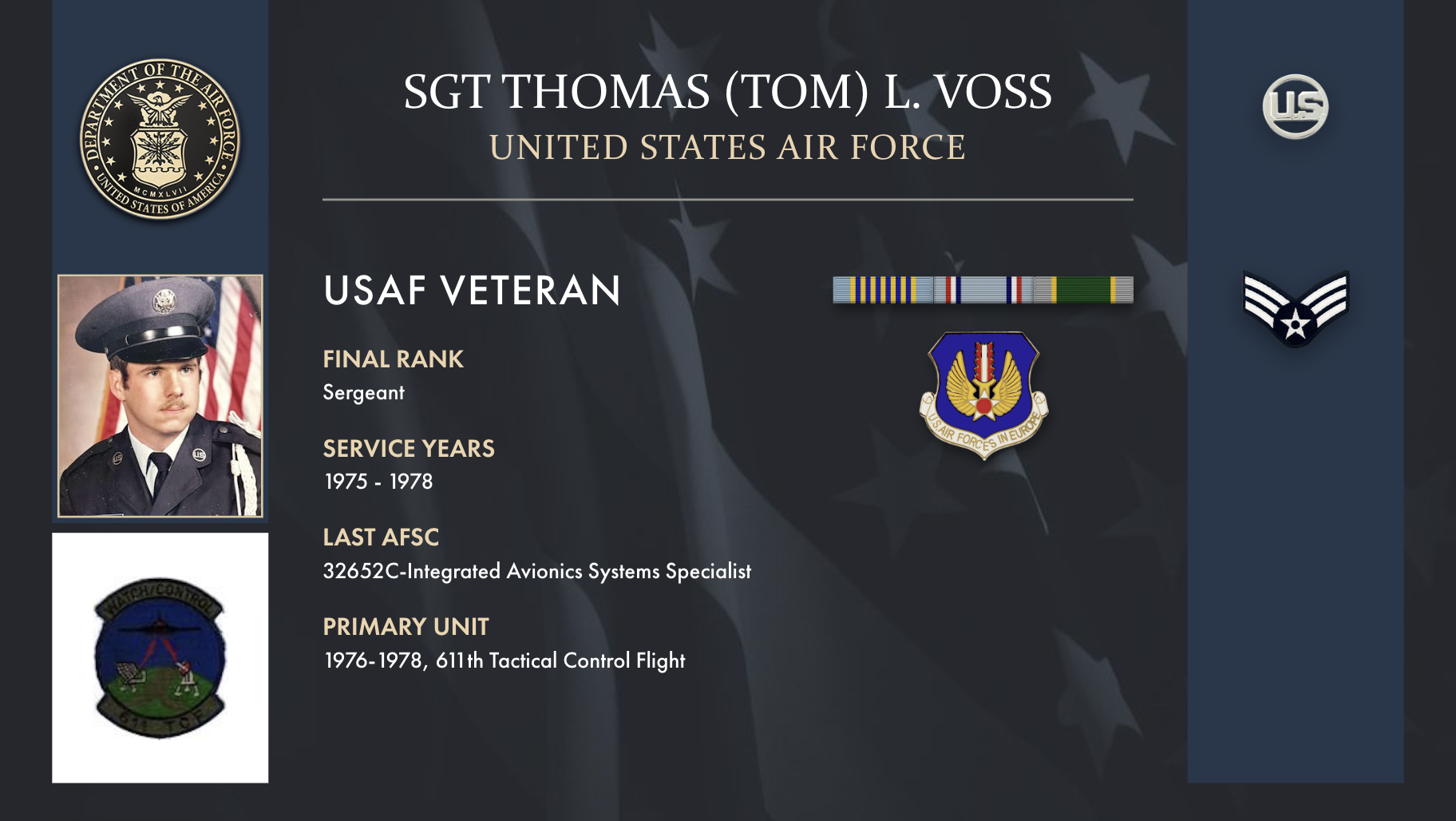
0 Comments